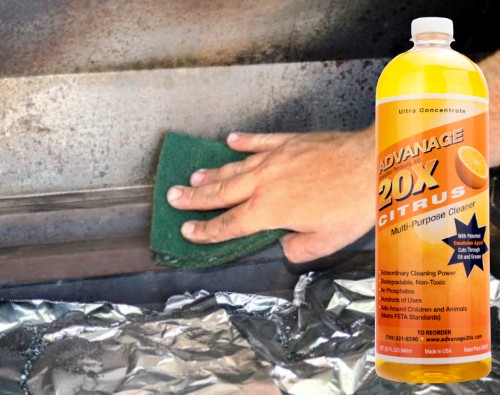
Discover the 5 critical areas where using all-purpose cleaner is a no-no! Learn how to keep your surfaces and items safe from damage. Find expert tips and insights in this comprehensive guide.
When it comes to keeping our living spaces clean and tidy, all-purpose cleaner often becomes our go-to solution. It’s versatile, convenient, and seems like the perfect solution for every cleaning task. However, there are instances where using an all-purpose cleaner might do more harm than good. In this article, we will explore five scenarios where you should never use an all-purpose cleaner, helping you avoid potential damage and maintain the longevity of your belongings.
Where should you not use all-purpose cleaner?
We all love the convenience of all-purpose cleaner, but here are five areas where you should avoid using it:
On Electronics and Screens
Electronics have become an integral part of our lives, and we need to be cautious when cleaning them. Spraying all-purpose cleaner directly on screens can lead to irreversible damage. The harsh chemicals can strip off protective coatings and seep into delicate components, causing malfunctions. Instead, opt for microfiber cloths and specialized electronic cleaning solutions to maintain the clarity and functionality of your devices.
On Natural Stone Surfaces
Natural stone surfaces, like granite and marble countertops, bring elegance to our homes. However, using all-purpose cleaner on these surfaces can dull their shine and even cause etching. The acidic nature of some all-purpose cleaners can react with the minerals in the stone, resulting in unsightly marks. Stick to pH-neutral stone cleaners to preserve the beauty of your natural stone surfaces.
On Antique or Delicate Furniture
Your cherished antique furniture or delicate woodwork deserves gentle care. All-purpose cleaners may contain ingredients that can strip away the polish and damage the wood over time. Instead, opt for furniture-specific polishes or simply use a damp cloth to remove dust and maintain the integrity of these valuable pieces.
In Closed, Unventilated Spaces
Using all-purpose cleaner in closed, unventilated spaces can lead to the inhalation of strong fumes, which may be harmful to your health. It’s essential to ensure proper ventilation when cleaning with any chemical-based product. Open windows and doors to allow fresh air to circulate, or consider using natural cleaning alternatives in confined areas.
On Fragile Fabrics and Upholstery
Spraying all-purpose cleaner on delicate fabrics and upholstery can result in discoloration, fading, or even staining. Always check the care labels of your textiles before using any cleaning product. For spot cleaning, perform a patch test in an inconspicuous area to avoid ruining your favorite couch or curtains.
Expert Tips for Safe Cleaning
- Read labels: Always read the labels of cleaning products to ensure they are suitable for the surfaces you intend to clean.
- Dilute appropriately: If you choose to use an all-purpose cleaner, follow the manufacturer’s instructions and dilute it properly.
- Test in an inconspicuous area: Before applying any cleaner to a visible surface, test it in a hidden spot to ensure it doesn’t cause damage.
- Use microfiber cloths: Microfiber cloths are effective for cleaning a wide range of surfaces without the need for harsh chemicals.
FAQs
Q: Can I use all-purpose cleaner on my car’s interior? A: It’s best to avoid using all-purpose cleaner on car interiors, especially delicate surfaces like leather and electronic screens. Opt for specialized automotive cleaners instead.
Q: Is it safe to clean my smartphone screen with all-purpose cleaner? A: No, it’s not recommended. The chemicals in all-purpose cleaners can damage the protective coatings on smartphone screens. Use a screen-specific cleaning solution.
Q: Can I use all-purpose cleaner on painted walls? A: While all-purpose cleaners can be used on some painted walls, it’s essential to test in an inconspicuous area first. Some paints may react unfavorably to the chemicals.
Q: Is there an eco-friendly alternative to all-purpose cleaner? A: Yes, you can create a natural all-purpose cleaner using ingredients like vinegar, baking soda, and essential oils. These are safe for many surfaces and the environment.
Q: Can all-purpose cleaner be used to clean jewelry? A: No, all-purpose cleaner may contain abrasive chemicals that can damage the finish of your jewelry. Stick to jewelry-specific cleaning solutions or gentle soap and water.
Q: Can all-purpose cleaner be harmful to pets? A: Yes, some cleaning products, including all-purpose cleaners, can be toxic to pets. Ensure proper ventilation and keep pets away from freshly cleaned surfaces.
Conclusion
While all-purpose cleaner is a versatile tool for many cleaning tasks, it’s crucial to use it wisely. By avoiding its use in the five scenarios mentioned above, you can protect your belongings and maintain their beauty and functionality. Always prioritize the safety of your surfaces, your health, and the environment by making informed cleaning choices.

August 21st, 2023 by GBN1



